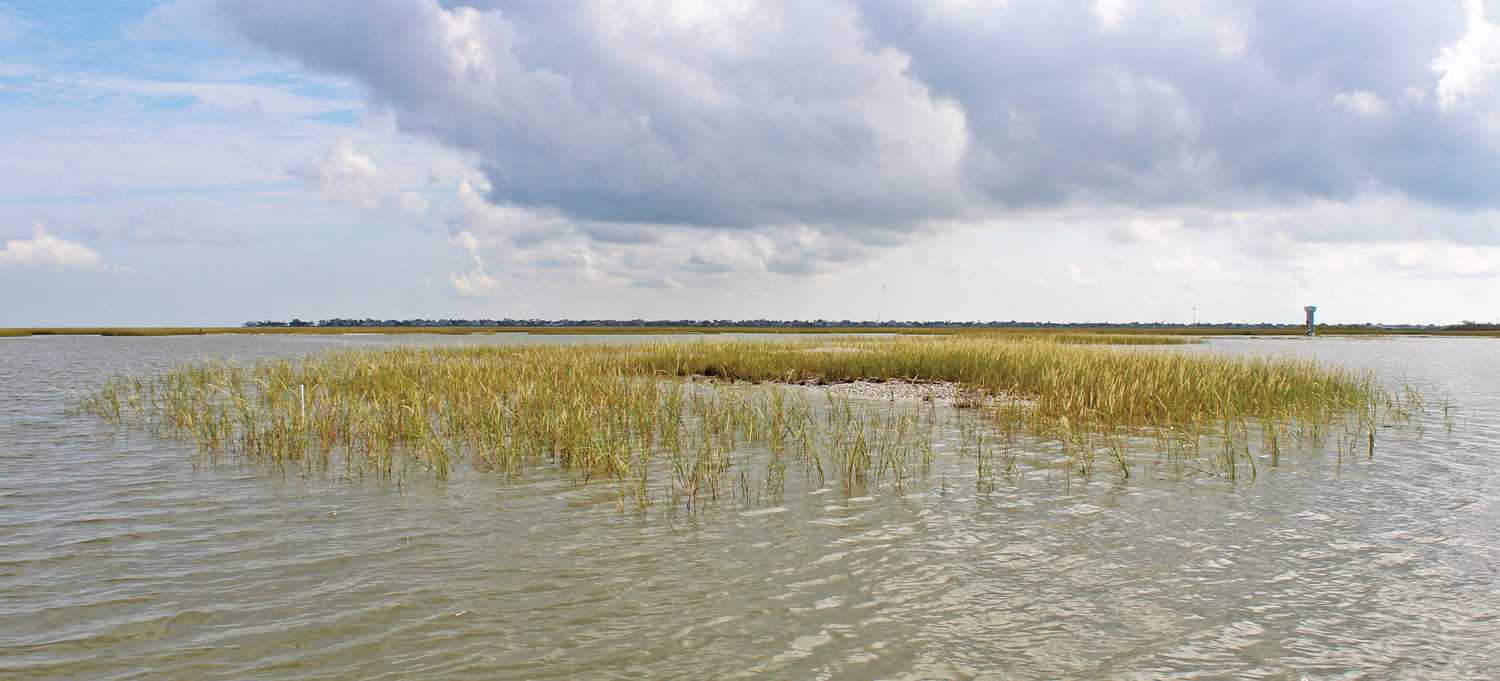Bird Island Cove Marsh Restoration Grass Planting

CCA Texas and Building Conservation Trust recently contracted Apache Ecological to plant 32,000 plugs of smooth cordgrass in the Bird Island Cove restoration area, located in West Galveston Bay.This restoration project was originally completed in February 2015.This recent grass planting is a supplemental planting within the project area to shore up marsh mounds which were not originally planted and to add stability to mounds that were previously planted, but were succumbing to some additional erosion factors.CCA Texas and Building Conservation Trust have committed $128,400 to this project to restore and protect critical marsh.
The Bird Island Cove project directly benefits approximately 114 acres of existing coastal wetlands in the Bird Island Cove area.This project includes approximately 4,000 linear-foot of segmented breakwater that protects existing estuarine marsh.In addition, hydraulic dredging was used to pump sediments from a nearby designated borrow area to restore the site to intertidal marsh elevations. These materials and elevations are suitable elevation for restoring salt flat marsh/sand flat habitat in addition to intertidal Spartina alterniflora marsh and allow for the migration of intertidal marsh to higher elevations in response to sea level rise.The methods used in this project have shown much success in West Galveston Bay, including projects at Jumbile Cove, J-Cove, Delehide Cove, Starvation Cove, Carancahua Cove and McAllis Point.
Texas coastal wetlands are one of the most important parts of the ecosystems up and down the Texas coast.These wetlands serve over 95% of fish species found in the Gulf of Mexico and the intertidal marshes serve as nursery areas for fishery species such as brown and white shrimp, blue crab, sand seatrout, Gulf menhaden, southern flounder, red drum, bay anchovy and many other marine organisms.Coastal wetland loss in Texas and in the Galveston Bay system in particular is significant and an ongoing concern because of the important and necessary roles that the wetlands perform.TPWD, CCA Texas and other organizations recognize the importance of these wetlands and are working continuously to protect and restore these resources.TPWD takes the lead in this effort and CCA Texas is there to provide community matching dollars for federal and state grants, outreach about the importance and roles of these resources, and volunteers for marsh grass planting events and other types of habitat events when volunteers are needed.

